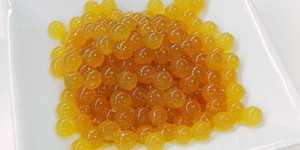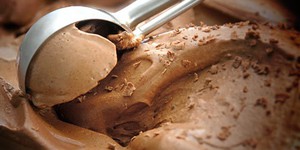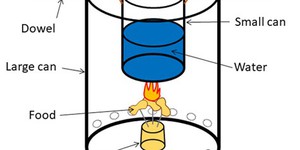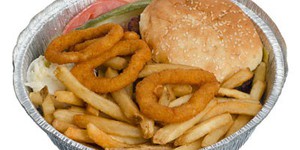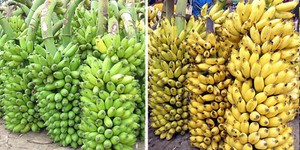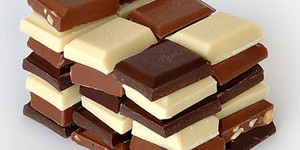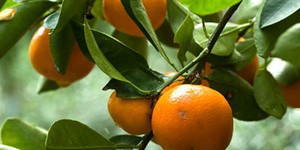Ninth Grade, Cooking & Food Science Science Projects (23 results)
Who doesn't love food? It's fun to make, it's fun to eat, it's fun to ...study? That's right! There is a lot of science that goes into the everyday foods that you love. Explore questions such as how baking ingredients work, how and why certain ingredients mix well together, and why people's tastes differ.
|
Select a resource
Sort by
|
Forget drinking your juice. Instead, try snacking on it! Use the steps and recipes in this food science project to transform drinks into semi-solid balls that pop in your mouth. The technique is called spherification and it is part of a larger food science trend called molecular gastronomy— but we just call it yummy science!
Read more
Featured
Have you heard that garlic powder is supposed to inhibit the growth of bacteria? Which do you think would make a better disinfectant: a solution of garlic powder or a solution of bleach? This project shows you a straightforward way to compare the effectiveness of different disinfectants (or other antimicrobial agents), by measuring zones of inhibition on a culture plate.
Read more
Have you ever made your own ice cream? If you have, you probably know that you need to get the ice cream mixture really cold to freeze it quickly. Ice cubes alone will not do the job, but if you add chemicals, such as salt or sugar, to the ice cubes that surround the ice cream container, the mixture gets cold enough to freeze. Why does that work? How does adding salt or sugar affect the freezing point of water? Find out with this ice-cold science project and use your results to make your own…
Read more
New
Drones are small, fast, and maneuverable - this can make them very hard to knock down! Check out this Mark Rober video where he explores both how professional defense companies and some backyard YouTube engineers tackle the problem of knocking drones out of the sky. Can you take this engineering challenge on yourself? What methods can you devise to take down a drone? Which one works the best?
Drones can be expensive, and you probably do not want to risk damaging a $1,000 drone for your science…
Read more
Which type of orange juice has the most vitamin C? In this science project, you will learn how to measure the amount of vitamin C in a solution using an iodine titration method. You will compare the amount of vitamin C in three different types of orange juice: homemade, premium not-from-concentrate, and orange juice made from frozen concentrate. Which do you think will have the most vitamin C?
Read more
Have you ever wondered how nutritionists know how many Calories a certain food contains? In this project you will learn a method for measuring how many Calories (how much chemical energy) is available in different types of food. You will build your own calorimeter to capture the energy released by burning a small food item, like a nut or a piece of popcorn. This project gives a new meaning to the phrase "burning calories!"
Read more
You know that sugar makes food sweet, but did you know that there are different kinds of sugar? Sucrose is the granulated sugar that you usually use for baking. Another kind of sugar, which is found in honey and in many fruits, is glucose. In this science project, you will measure the concentration of glucose in a variety of foods. You will use special test strips that change color in response to glucose to measure the glucose concentration in different foods.
Read more
New
Does your dog get bored when you are not home? Do you ever toss them a few treats right before you head out the door? What if you could keep them busy by automatically dispensing treats throughout the day? What about training them to sit in a certain place or even press a button by automatically rewarding them with treats? In this project you will build your own automatic dog (or cat, or other pet) treat dispenser that you can customize to react to different sensors.
Read more
Have you ever been told to avoid certain foods because they contain too much fat? Almost every food we eat has some amount of fat in it; often in an invisible form so we do not even notice. However, eating healthy does not mean getting rid of all fat in your diet. On the contrary, fat is an essential nutrient for your body! Only consuming too much of certain fat types creates problems. Are you curious about how to determine the fat content of different foods? Gather some chips, chocolate, and…
Read more
You have most likely witnessed the change that occurs as a banana ripens It changes from green and relatively hard to yellow and soft. The flavor also changes, from bitter to sweet. What happens during ripening? One big change is the increase in sugar content. In this food science fair project, you will measure how the sugar content of a banana changes as it ripens.
Read more
Nut clusters, chocolate-dipped candies, and chocolate-dipped strawberries are just some of the delicious goodies that have a thin, rich layer of chocolate wrapped around them. But how do pastry and candy chefs make these delectable treats? The first step is to melt and temper chocolate. Tempering is a process in which the cocoa butter in chocolate is hardened into a specific crystalline pattern. When the cocoa butter molecules are in this pattern, the chocolate is shiny and breaks with a sharp…
Read more
Are oranges highest in vitamin C when they are fresh from the tree (or, in a pinch, the grocery shelf)? Does the amount of vitamin C in an orange change over time, after it has been picked? In this science project, you will find answers to these questions by measuring the amount of vitamin C in a solution using an iodine titration method.
Read more
You're probably familiar with sauerkraut, a German dish of cabbage that is fermented in a brine made of its own juice and salt. Have you heard of another cabbage dish, called kimchi? Kimchi is a traditional fermented cabbage dish from Korea. Koreans eat kimchi year round, enjoying its spicy taste and the fact that it contains loads of vitamins B and C. In this cooking and food science fair project, you will make kimchi from scratch and investigate changes in pH and glucose as the kimchi…
Read more
|
Explore Our Science Videos
Fire Snake Experiment
How Train Wheels Stay On Track - STEM activity
Finding Pi Using Everyday Objects


